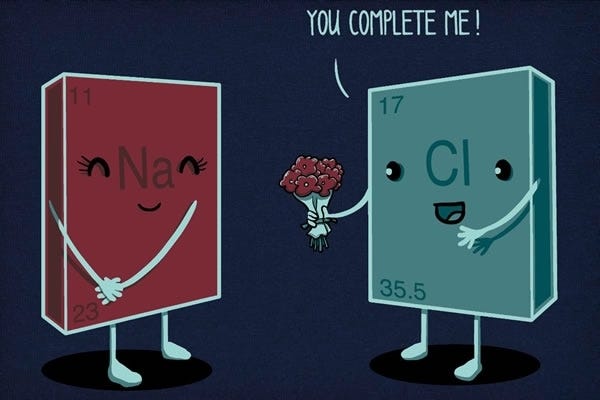Chemistry has always had a reputation of being a tough A Level: the concepts are difficult, there’s a lot to learn and the exam questions are demanding. Whilst this may be true, there are still some parts of the course that we consider to be easier or more difficult that others. You shouldn’t worry though, you can conquer even the toughest parts of the course with the right revision technique!

1. Understaning the concepts
For us one of the hardest parts of A Level chemistry is trying to understand concepts which you can’t actually see. You will be expect to deal with ideas like electron configuration, hydration energy and oxidation states, some of which can be confusing if you’re unable to visualise them. Sometimes it does help to draw out diagrams and models (such as drawing the electrons transfer between atoms) but for us it can still be quite confusing sometimes.

2. Working out what the question is expecting you to do
Another aspect of chemistry that we find hard is working out what the question is expecting you to do. This is more common with equation questions where it can often be difficult to work out which equation you’re expected to use. To break it down you can highlight the information that the question gives you (such as the compounds you have and how much of them there is) in different colours so it is easy to separate into individual parts. When faced with a lot of information, which is normally in different units, it can be difficult to figure out which steps you need to take to get to your final answer, so it helps to see what you’re actually working with.

3. Memorising a large amount of information
We also find it tricky to memorise the huge amount of information that you need to know; in particular I’ve struggled to learn the bond angles of molecules and the reactions for organic molecules. Obviously flashcards are an option, but we have also found that just writing it out over and over again works for me. Biology typically has a reputation for having the most content to memorise, but chemistry seems to have more tiny details that you need to learn so you should definitely pay attention to things like keywords when revising the content.

4. Mastering the exam technique
Exam technique is another key part to doing well in a chemistry exam. For some topics, like bonding or practical techniques, there are long answer questions and there will always be certain points that you have to get every time. We have tried to overcome this by coming up with a checklist of everything that we need to include to make sure that we put it into our answer. Good exam technique can be difficult for chemistry because there are very few past paper questions available for the new specification and the only way to improve it to practise. Luckily, most the time you can use questions from the old specification (from your exam board) and it won’t matter too much.

Like every course, chemistry has its hard parts and its easy parts. It’s important to remember that for every topic that you struggle with there is normally another one which you will find easy, so you shouldn’t worry if you don’t understand something straight away. The right revision technique can also make a huge difference to how much you understand something; sometimes diagrams are best, but other times it may be easier to make flashcards or match-up games - it all depends on the content that you are trying to learn!

